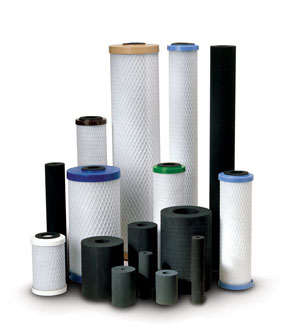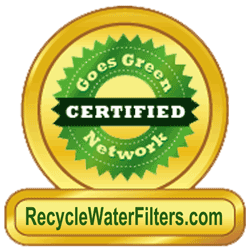Common Drinking Water Contaminents
Manganese in Drinking Water
What is manganese and why is it in my water?
Manganese is a naturally occurring mineral found in many types of rocks and soil in the environment. It is one of the most abundant metals on the surface of the earth. It can be found in both groundwater and surface water. It is also caused as the result of human activity such as mining or industry waste. Drinking water can be a potential source of exposure to manganese. Elevated manganese concentrations can occur in municipal water as well as water from private wells. Most exposure occurs from ingestion and not from bathing or showering. The amount that your body absorbs is greater from drinking water than from food or bathing.
What are the potential health effects of manganese in drinking water?
Manganese is an essential nutrient at very low doses. Potential high levels found in drinking water can be a health concern. Potential damages are dependent on many factors. Certain groups that are more sensitive to manganese include infants, the elderly, and those with liver disease. Studies suggest exposure to manganese in drinking water can have detremental neurological effects to infants and children. Issues can include changes in behavior, lower IQ, speech and memory difficulties and lack of coordination. Manganese in drinking water can also cause a metallic taste to the water that may be a bad taste to most people. Manganese also can cause black stains on tubs/showers, toilets, bath fixtures and washing machines.
Is there manganese in your drinking water?
While tap and bottled water generally contain safe levels of manganese, well water may sometimes be contaminated with sufficiently high levels of manganese to create a potential health hazard. If you are experiencing black stains on your shower, toilet, bath fixtures or washing machine then it is likely you have manganese in your drinking water. You should have your water tested. You should also treat your drinking water with an approved method such as reverse osmosis.
Is manganese in drinking water regulated?
At this time there is no federal enforceable maximum contaminant levels (MCLs) for manganese in drinking water. Public water systems are not required to test for manganese under the Safe Drinking Water Act (SDWA). It is for each homeowner to decide to employ a safe drinking water system for their own family.
The best way to remove manganese from your water?
Water treatment technologies that have been shown to be capable of removing manganese from drinking water for home, office or commercial use include cation exchange water softening, distillation, filtration and reverse osmosis.




